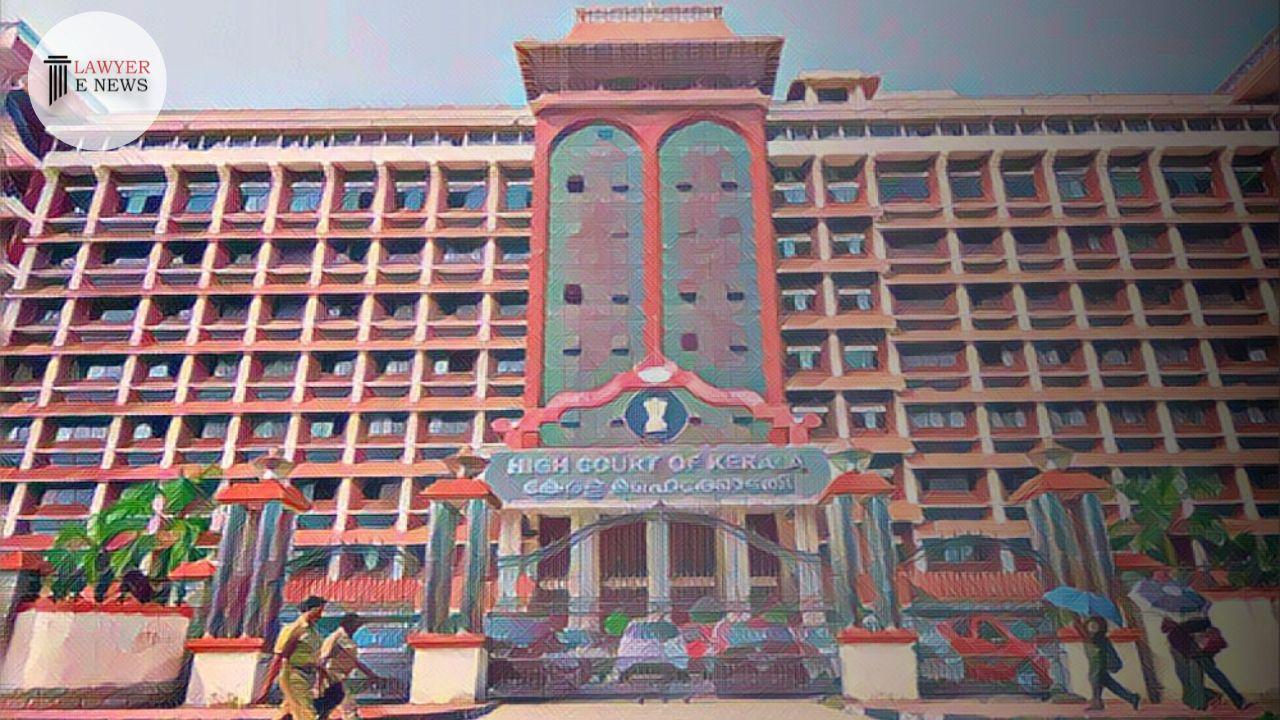-
by sayum
14 February 2026 2:22 PM



Kerala Administrative Tribunal’s decision to award interest on delayed Death-cum-Retirement Gratuity (DCRG) upheld by High Court, emphasizing equity and constitutional rights.
The High Court of Kerala has dismissed the petition filed by the State of Kerala and other petitioners challenging the Kerala Administrative Tribunal’s order granting interest on the delayed payment of Death-cum-Retirement Gratuity (DCRG) to A.N. Sojan, a retired Senior Superintendent. The court’s decision reaffirms the Tribunal’s ruling that withholding DCRG without judicial proceedings is illegal and underscores the constitutional rights of retired employees to their retirement benefits.
The respondent, A.N. Sojan, retired as a Senior Superintendent on May 31, 2015. His DCRG was withheld due to a vigilance case filed against him and three other employees under Sections 13(1)(d) and 13(2) of the Prevention of Corruption Act, 1988, and Section 120B of the Indian Penal Code (IPC). The FIR was quashed by the High Court, leading Sojan to seek interest on the delayed gratuity payment, which the Tribunal granted at 7% per annum. The State challenged this order, arguing the legality and financial burden of paying interest.
Legality of Withholding DCRG:
The court noted that Rule 3A of Part III of Kerala Service Rules (KSR) allows withholding DCRG only if departmental or judicial proceedings are pending. The vigilance case against Sojan had not progressed to judicial proceedings, making the withholding of DCRG improper. “The Government was wrong in stating that judicial proceedings were pending against the respondent,” the court affirmed.
Right to Interest on Delayed DCRG:
Despite no statutory provision for interest on delayed DCRG in KSR, the court emphasized constitutional protections underArticles 14, 19, and 21. Quoting from the Supreme Court’s ruling in S.K. Dua v. State of Haryana, the bench stated, “An employee can claim interest on the strength of fundamental rights guaranteed under Articles 14, 19, and 21 of the Constitution even if no provision in the statutory rules governing the field enables him to raise the same.”
Credibility of Previous Proceedings:
The State’s earlier admission of Sojan’s innocence played a pivotal role in the court’s decision. In the quashing order of the FIR, the State Attorney had acknowledged that no criminal misconduct was detected. “The initiation of proceedings under the Prevention of Corruption Act against the respondent was totally unfounded,” noted the court, justifying Sojan’s entitlement to interest.
Quotes from the Judgment:
Justice S. Manu remarked, “Pension and gratuity are no longer any bounty to be distributed by the Government to its employees on their retirement, but have become valuable rights and property in their hands, and any culpable delay in settlement and disbursement thereof must be dealt with the penalty of payment of interest.”
The High Court’s ruling reinforces the legal framework protecting the rights of retired employees to their due benefits. By dismissing the State’s petition, the court has underscored the importance of timely disbursement of retirement benefits and the accountability of the government in upholding these rights. This judgment is expected to influence future cases, ensuring fair treatment of retirees and adherence to constitutional principles.
Date of Decision: July 10, 2024
State of Kerala & Ors. V. A.N. Sojan
